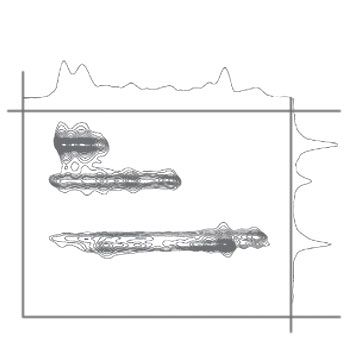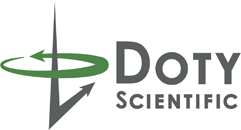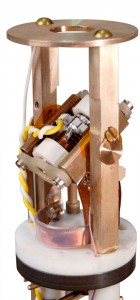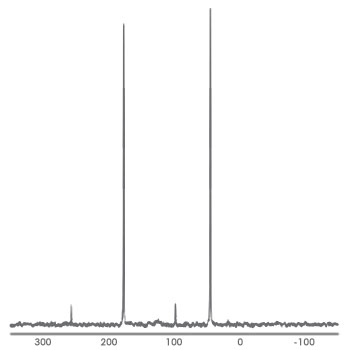Narrow Bore H/X or H/X/Y MAS Probes up to 1300 MHz
S/N, RF Field Strength, and Extended VT
Low E 1H Coil for High Fields
High-Q Inner Solenoid for X and Y
Highest S/N (500 MHz, H/X tuning)
4 mm – 205:1 on 50 mg of glycine, 13C . 1H with 97.4 W and 13C with 93.1 W
3 mm – 103:1 on 18 mg of Glycine, 13C. 1H with 97.5 W and 13C with 53 W .
3 mm – 258:1 on 18 mg of HMB, 13C.
Highest rf field strengths and efficiency
1.3-µs π/2 pulse with only 640 W for 13C.
3 mm DI-3 at 500 MHz, H/X tuning.
Extremely robust and easy to use.
3 year limited warranty.
Fast sample spinning in high-sensitivity Si3N4 rotors
28 kHz in the DI-3
18 kHz in the DI-4
(and more spinners – see below)
H-F/X/Y broad-band tuning with maximum performance.
Tuning options from 109Ag to 31P. High-power, long-acquisition 1H decoupling (even at 950 MHz). 100 ms of 70 kHz 1H dec. on the DI-4 at 500 MHz with 250 W.
Wide Temperature Ranges Options:
-80°C to +120°C for Standard NB VT Range
-160°C to +150°C for XVT (extended NB VT)
Lowest thermal gradients.
<3°C under combined fast MAS, high decoupling, and XVT.
Lowest background signals.
Minimal 13C, 1H, 19F,27Al, 29Si, 11B, 15N, 23Na, 2H, 17O, … Si3N4 and non-magnetic alloy construction.
Exceptional 1H B1 homogeneity over full sample.
Best axial and Q stability for minimal artifacts in 2D spectra (patented coil and spinner technology).
Minimum E fields for negligible RF sample heating.
Si3N4 rotors, for best S/N and longest lifetime.
Order of magnitude lower decoupler heating compared to solenoid only
Compatible with Agilent, Bruker, and JEOL (and other earlier systems)
Superior spinning speed stability – under 1 Hz.
Clean optical sensing for pulse-rotation synchronization.
Spectra
|
4 mm CP/MAS at 500 MHz, Glycine, The probe had a “Bmax” coil with an inner X solenoid and a low E 1H outer coil. Spectra: George Entzminger and Paul Ellis, Doty Scientific |
|
|
3 mm H/X @ 500 MHz, 2D MQ-MAS spectrum The probe had a “Bmax” coil with an inner X solenoid and an outer low E 1H coil. Spectra: Mike Frey, JEOL |
 |
|



